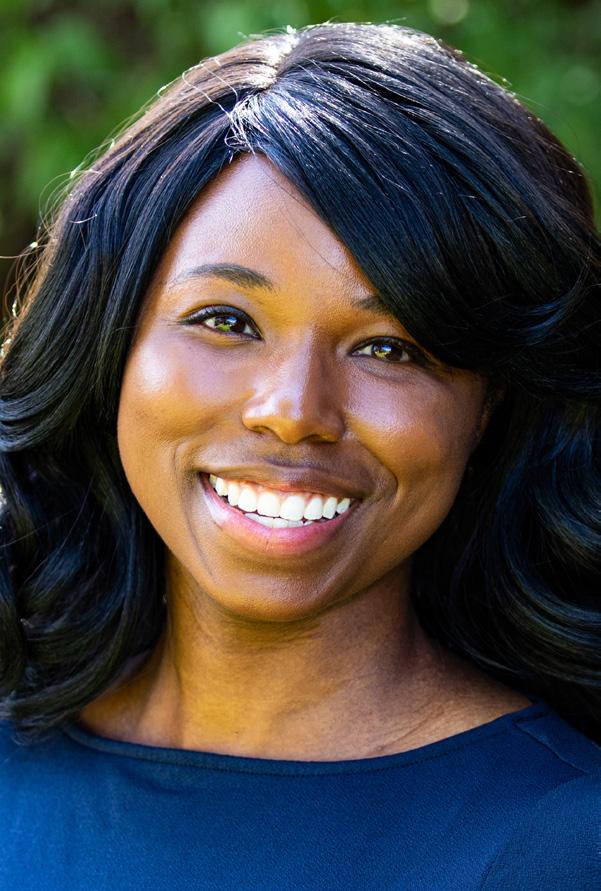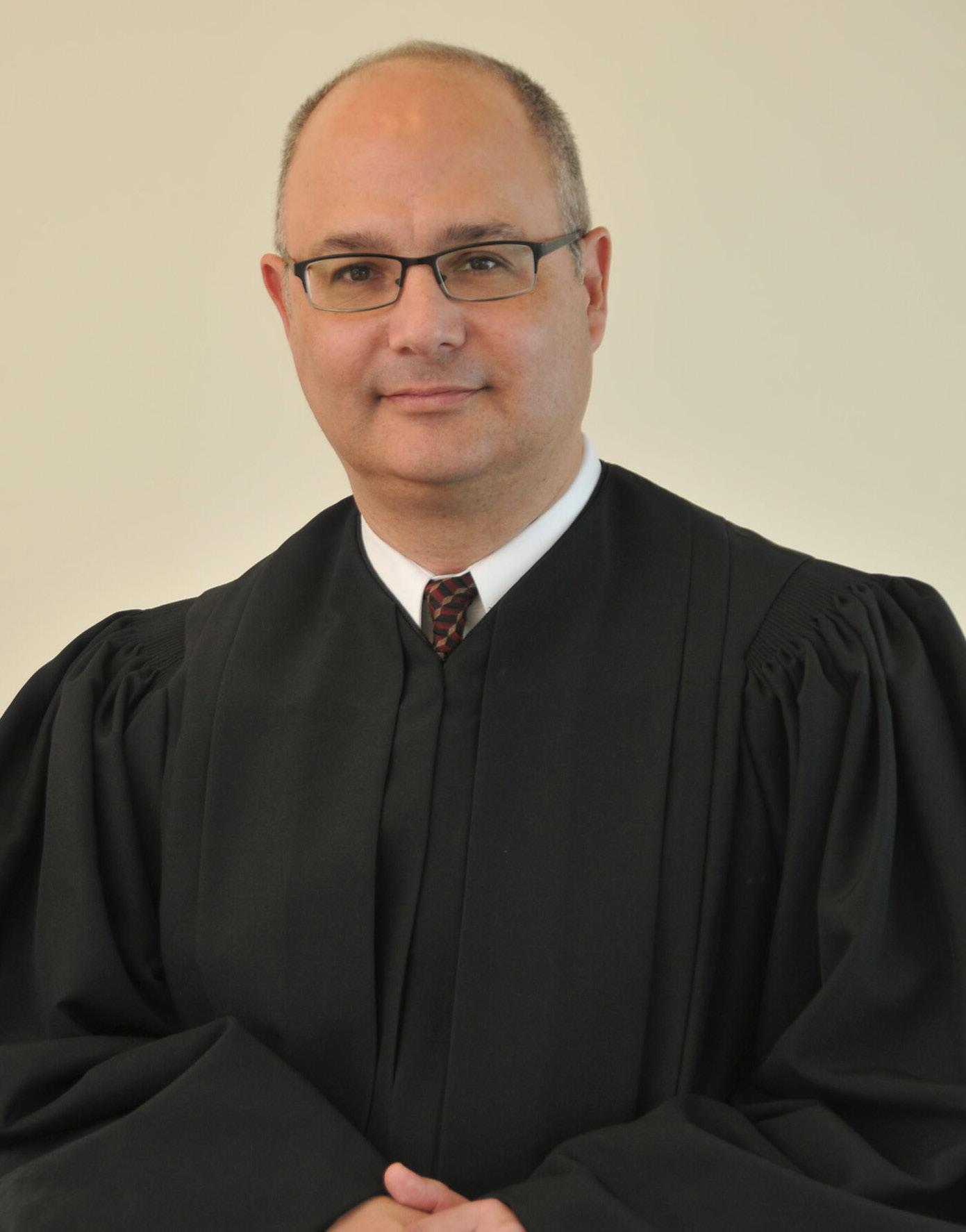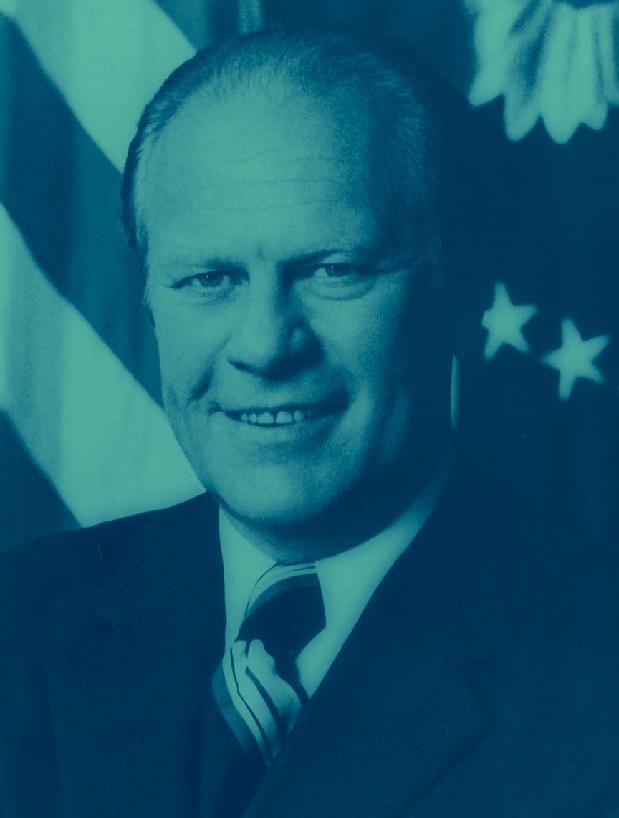
5 minute read
RBG: Reflections
PRESIDENTS’ LETTER | BY KEVIN E. McREYNOLDS AND A. TYRONE GLOVER
As our legal community mourns the passing of one our most respected jurists, we reflect on Justice Ginsburg’s legacy and her impact on society. Her contributions to the fight for equality were significant. Her influence on the advancement of women’s and LGBTQ rights is undeniable. And arguably it was in dissent when she was most powerful, speaking the truth when the moment most demanded it. We spoke to one of Justice Ginsburg’s former clerks, Attorney General Phil Weiser, and also with Colorado State Supreme Court Justice Melissa Hart, who clerked for another U.S. Supreme Court justice during the time when Justice Ginsberg issued some of her most famous opinions. When asked about Justice Ginsburg’s legacy, A.G. Weiser said:
She leaves a rich legacy, primarily as a trailblazer. The values she fought for — women’s rights, equality, and justice — have made our society better and fairer. She elevated the quality of the Supreme Court’s work, through her brilliance, outstanding lawyering, and collegiality. And she inspired millions to do their part to advance their values and view law as a tool for advancing the cause of justice and a more inclusive “We The People.”
Justice Hart, also focused on Justice Ginsburg’s time as a lawyer and advocate, reminding us of the impact that we, as lawyers, can have on greater humanity:
The way that she shaped the law we all now live under happened 20 years before she was appointed to the court — in her fight, as an advocate, for women’s full citizenship. Every single man and woman alive today have different opportunities than they otherwise would have directly because Ruth Bader Ginsburg saw — and convinced the courts that women deserved an equal opportunity to participate in the workplace and men deserved an equal opportunity to participate in the home.
A.G. Weiser, remembers a case from his clerking days where Justice Ginsburg built upon work she started as an advocate and delivered an opinion that would forever impact women’s rights in our military institutions:
The US v. Virginia case, involving the Virginia Military Institute, was decided when I was clerking for her and established the principle that discrimination on the basis of gender could only be justified with an exceedingly persuasive justification. In that case, the Court built on prior work of Justice Ginsburg as an advocate, developing the principle that gender discrimination is not tolerated by our Equal Protection Clause. Later, VMI invited Justice Ginsburg to address their cadets, acknowledging that their prior discrimination was unjustified and that the women cadets were contributing to their community
Justice Hart reminded us of one of RBG’s most legendary dissents where she made her now-famous analogy regarding the elimination of preclearance from the Voting Rights Act, saying “[t]hrowing out preclearance when it has worked and is continuing to work to stop discriminatory changes is like throwing away your umbrella in a rainstorm because you
A Denver Bar Association publication. Views expressed in articles are those of the author and not the views of the author’s employers, the Docket Committee or the Denver Bar Association, unless expressly stated.
OUR MISSION
To educate and entertain the Denver legal community without being sued!
EDITOR
Charles McGarvey, cmcgarvey@cobar.org
GRAPHIC DESIGN
THOR Design Studio thor.design
ADVERTISING
Jessica Espinoza, advertising@cobar.org
DOCKET COMMITTEE
Kali Backer, Brendan Baker, Ainsley Bochniak, Marion Brewer, Becky Bye, Martin Champagne, Klaralee Charlton, Craig Eley, David Erickson, Joshua Fitch, Laurinda Frederick, Emma Garrison, James Garts, Otto Hilbert, Ryan Jardine, Ezra Kramer, Karl Kumli, Richard Lionberger, Colleen McCoy, Douglas McQuiston, Corinne Miller, Blain Myhre, Jennifer O’Connell, Robert Petrowsky, Liz Pope, Gregory Rawlings, Jonathan Shamis, Dana Showalter, Marshall Snider, Dianne Van Voorhees, William Wenzel, Rachel Young
2020–21 CHAIR: Julie Stermasi
2020–21 DBA OFFICERS: Kevin E. McReynolds, President; Mo Watson, Immediate Past President; A. Tyrone Glover, President-elect; Ruchi Kapoor, First Vice President; Nicoal Sperrazza, Second Vice President; Klaralee Charlton, Treasurer
2020–21 BOARD OF TRUSTEES: Katy Dunn, April Jones, Christine Kroupa, Joseph Mark, Noah Patterson, Sara Sharp, Mario Trimble, Wendy Weigler, Lara Zarzecki, Matt Deegan Young Lawyers Division, Christine Hernandez, Diversity Bars Representative
WRITE FOR THE DOCKET: DBA members are encouraged to send story ideas, photos, tips, and articles for the Docket Committee’s consideration. We are looking for content by Denver attorneys for Denver attorneys, focusing on trends, courts and practice management, in addition to opinion and satire pieces. Please send ideas and member announcements to Editor Charles McGarvey at cmcgarvey@cobar.org.
The editor has the right to accept and reject submissions at his discretion.
303-860-1115 • denbar.org/members/the-docket
Copyright 2020. The Docket (ISSN 1084-7820) is published six times a year by the Denver Bar Association, 1290 Broadway, Suite 1700, Denver, CO 80203. All rights reserved.
The price of an annual subscription to members of the DBA ($15) is included in their dues as part of their membership. Periodicals postage paid at Denver, CO and additional mailing offices.
POSTMASTER send address corrections to the Docket, Denver Bar Association, 1290 Broadway, Suite 1700, Denver, CO 80203.
are not getting wet.” Justice Hart had this to say about the dissent:
Justice Ginsburg achieved her superhero “Notorious RBG” status after she had already served as a justice for 20 years and as a result of her powerful dissent in Shelby County v. Holder. She often reflected that dissents were written, not for today, but for tomorrow. A judge writes a dissent hoping that, with time, that position will become the majority. And perhaps some of her powerful dissents will one day become the majority position. If that does happen, she will have significantly shaped the law in ways we still cannot see.
Lastly, A.G. Weiser reminds us that professionalism is a fundamental tenet and a guiding principle of our conduct. He said this of Justice Ginsburg and professionalism:
Justice Ginsburg’s sense of equanimity was extraordinary. Even as she faced challenging times, she kept her head and was calm, cool, and collected. It has taken me time to develop that competency, but she provided a powerful example of its importance. She also had a deep commitment to public service, law as a tool for promoting justice, and equality. She lived those values profoundly and they continue to be an inspiration to me. Finally, Justice Ginsburg was committed to listening to and learning from others, working to see their points of view, and sharpening her thinking through true engagement with different ideas. That quality explains how she and Justice Scalia could be such good friends and have so much mutual respect for one another.
We are saddened that Justice Ginsburg is no longer with us. But we are forever grateful for the positive lasting impact she had and will continue to have on the world. It was certainly a life well lived and pleasure to have had such a remarkable representative of our profession.
Kevin McReynolds
Kevin E. McReynolds, DBA President A. Tyrone Glover, Jr.
Tyrone Glover, DBA President-Elect









